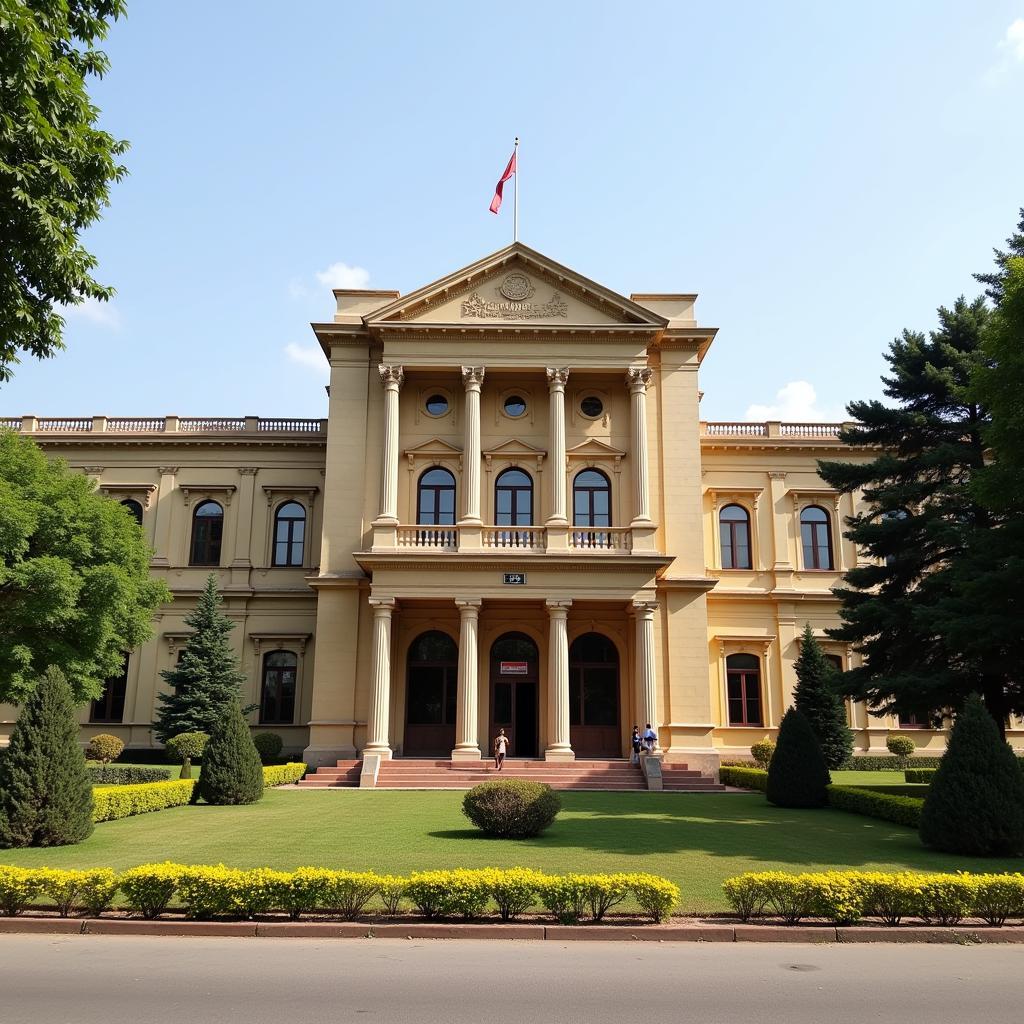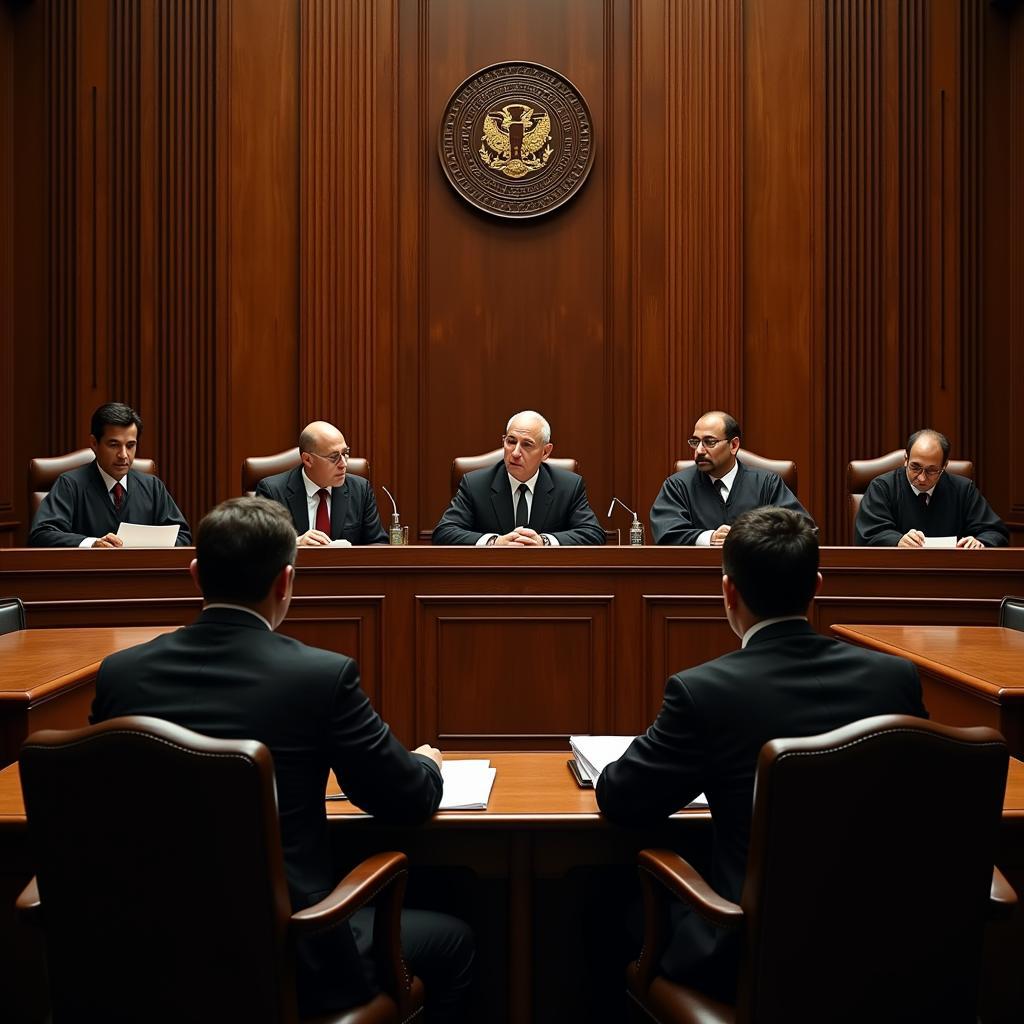The term “Cpla In Supreme Court Of Pakistan” often arises when discussing legal battles and appeals within Pakistan’s highest court. This article delves into the intricacies of CPLAs, their significance in the Supreme Court, and the procedures involved.
Understanding CPLAs: A Primer
CPLA stands for Civil Petition for Leave to Appeal, a legal document seeking the Supreme Court’s permission to appeal a decision made by a lower court, typically the High Court. It acts as a gateway to the Supreme Court, ensuring only cases with substantial legal questions reach the highest judicial forum.
 Supreme Court of Pakistan
Supreme Court of Pakistan
When is a CPLA Filed?
A CPLA is filed when a party believes the High Court’s judgment:
- Erroneously interprets the law: The High Court misconstrued or misapplied a legal provision.
- Suffers from factual errors: The High Court’s decision relies on incorrect or incomplete facts.
- Involves a substantial question of law: The case presents a legal issue of public importance requiring the Supreme Court’s interpretation.
The CPLA Filing Process: Step-by-Step
- Drafting the CPLA: A skilled lawyer specializing in Supreme Court litigation meticulously drafts the CPLA, outlining the grounds for appeal, relevant legal precedents, and arguments.
- Filing the CPLA: The CPLA, along with necessary documents and court fees, is submitted to the Supreme Court’s Registrar’s office.
- Preliminary Hearing: The Supreme Court conducts a preliminary hearing to determine if the case merits a full hearing. The court assesses if the CPLA raises a substantial question of law or if there are any procedural irregularities.
- Granting Leave to Appeal: If the court finds merit, it grants leave to appeal, formally accepting the case for a full hearing.
- Full Hearing and Judgment: The Supreme Court hears arguments from both parties, examines evidence, and delivers its judgment.
 Lawyer reviewing a CPLA document
Lawyer reviewing a CPLA document
Key Considerations for CPLAs in the Supreme Court of Pakistan
- Limited Scope: The Supreme Court primarily hears cases involving significant legal questions, not mere factual disputes.
- High Legal Threshold: CPLAs must demonstrate a compelling reason for the Supreme Court to intervene.
- Time Sensitivity: Strict timelines govern the filing and processing of CPLAs.
- Representation by Expert Counsel: Navigating the complexities of a CPLA demands legal expertise.
Expert Insight
“Framing the right legal arguments and presenting a compelling narrative backed by strong evidence is crucial for a successful CPLA in the Supreme Court,” says Barrister Ayesha Khan, a seasoned Supreme Court lawyer. “The Court prioritizes cases that have broader legal implications beyond the immediate parties involved.”
 Supreme Court Justices in session
Supreme Court Justices in session
Conclusion
A CPLA serves as a critical instrument for seeking justice from the highest court in Pakistan. Understanding the purpose, procedure, and key considerations surrounding CPLAs is vital for anyone seeking to utilize this legal avenue. For expert legal guidance and assistance with CPLAs, contact our team at +923337849799 or [email protected]. We are available 24/7 to address your queries. Our office is located at Dera Ghazi Khan Rd, Rakhni, Barkhan, Balochistan, Pakistan.